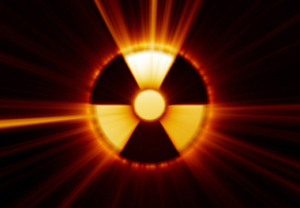por
Brendon Nafziger, DOTmed News Associate Editor | June 15, 2011
A startup pharmaceutical company received a $3.5 million government contract to further develop a drug derived from soy and designed to protect people's lungs from radiation injury after a nuclear attack.
The drug is one of four Eden Prairie, Minn.-based Humanetics has under development to protect people against the harmful effects of ionizing radiation. The company said it's also investigating using the drugs to minimize the dangers of medical radiation from CT scans and cancer radiotherapy treatments.
The two-year contract comes from the Biomedical Advanced Research and Development Authority, an agency within the U.S. Department of Health and Human Services that seeks to develop new responses to potentially catastrophic medical emergencies -- such as a nuclear terrorist attack in an American city.



Ad Statistics
Times Displayed: 49670
Times Visited: 1409 Ampronix, a Top Master Distributor for Sony Medical, provides Sales, Service & Exchanges for Sony Surgical Displays, Printers, & More. Rely on Us for Expert Support Tailored to Your Needs. Email info@ampronix.com or Call 949-273-8000 for Premier Pricing.
As part of its medical countermeasures against radiation program, BARDA has financed studies on similar drugs, such as CBLB502, or Protectan, being developed by Buffalo, N.Y.-based Cleveland Biolabs.
The reason for BARDA's interest is that, currently, no drugs are FDA-approved to treat severe radiation exposure, known as acute radiation syndrome. ARS can cause a gruesome, lingering death by destroying cells in the lungs, gut and bone marrow, leaving victims to die sometimes weeks after the fatal exposure.
Now, with the new grant, Humanetics can run efficacy studies on animals for the drug, called Bio 300, or genistein. Genistein is an isoflavone derived from soy, red clover and other plants, which behaves as an antioxidant, BARDA said.
BARDA Director Dr. Robin Robinson said early-stage studies on genistein were interesting enough to warrant conducting additional research. "This product shows promise to become part of the radiation medicine bag," he said in a statement.
Humanetics, which also sells weight-loss dietary supplements, said it has already received $7.75 million from the Department of Defense to work on radiation countermeasure drug research, the company's president and CEO Ronald J. Zenk told DOTmed News by e-mail. In 2007, Bio 300 earned orphan drug status from the Food and Drug Administration. This designation provides companies tax incentives, market exclusivity and assistance to encourage them to research drugs to treat rare conditions.
So far, most of the efficacy studies on Bio 300 have been done at the Armed Forces Radiobiology Research Institute in Bethesda, Md., according to the company.
In results from these studies posted on its website, the scientists found irradiated mice given the drug were many times more likely to survive than those given a placebo. A 2006 study, also with mice, showed those given Bio 300 had much higher blood cell count after sub-lethal whole body gamma radiation exposure.

